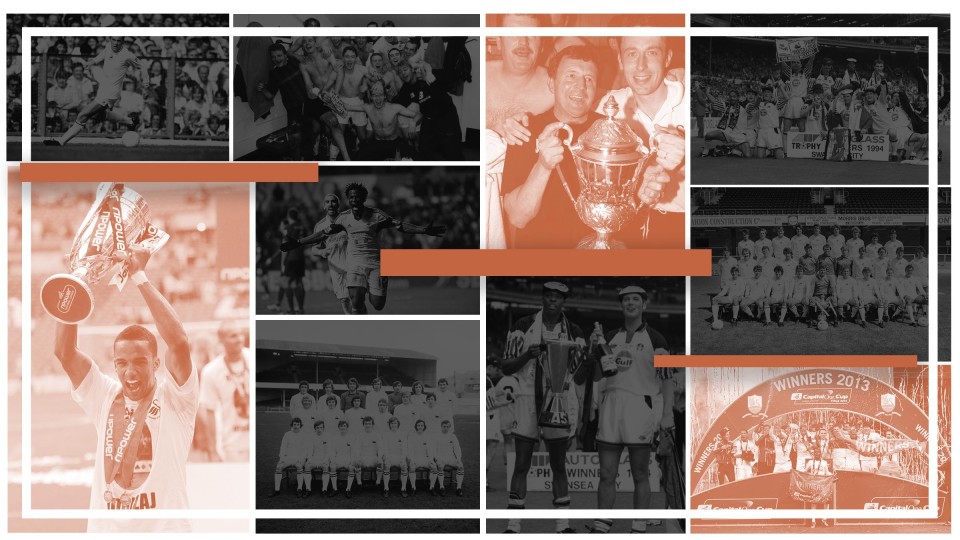Classic Seasons: 1912-13
In a regular website feature, we look back through the history books at a memorable Swans campaign.
Here, we go back to 1912-13, the first season in the Swans' history.
Football had been played throughout the town and surrounding areas for quite a few years, though it was not until 1896 when the Swansea and District League was created that the sport became a threat to the supremacy of the rugby code which dominated in South Wales.
Earlier pioneers of these games were teams such as East Side, Swansea Villa and Blue Star, and the possibilities of the association code having a future in the town was demonstrated when a crowd of over 10,000 attended St. Helen’s to see Wales defeat Ireland 4-1 in February 1894.
In 1909, a Swansea representative side played an exhibition match against Crystal Palace at Danygraig.
Seeing the potential for football following the game, Harry Bradshaw, secretary of the Southern League, encouraged local officials to form a team to represent the town and seek admission to the league.
By January 1912, the various parties interested in forming a club called Swansea Town had alerted the local press of their intentions.
Following a public meeting that saw a committee elected four months later along with the Swans’ first chairman, JW Thorpe, and secretary, SB Williams, the club was elected to the Second Division of the Southern League.
Now the race was on to be ready for the big kick-off, with a manager, squad of players and a ground needing to be in place for the September start.
The ground was the first of these in place, with Vetch Field in the town centre being leased from the Swansea Gaslight Company.
By early July, the board were able to announce their choice of manager in former Exeter City player-coach Walter Whittaker (above), who immediately set about assembling a team that could represent this fledgling professional club.
After a frantic couple of months, the day finally arrived on September 7, when the first professional Swansea Town team opened their account against neighbours Cardiff City.
The mayor of Swansea, a Mr Protheroe, began proceedings by kicking off the game, and an excited crowd of over 8,000 watched as the two teams battled for supremacy.
Billy Ball (below) scored the club’s first ever goal in the first half and, although the visitors equalised, the Swans could feel satisfied after their first competitive fixture.
The team remained undefeated in their first nine league games and climbed to fifth place, before Southend United ended that run by inflicting a first defeat in February.
Nevertheless, the Swans continued their fine form and eventually earned a creditable third-place finish, going unbeaten at home all season.
And there was to be a successful ending to the club’s first season as a professional club courtesy of the Welsh Cup.
The Swans had already played seven games to reach the semi-finals, where they defeated Cardiff City 4-2 with the aid of a Billy Ball hat-trick at Penydarren Park.
A showdown with Pontypridd at Ninian Park awaited them in the final and a game in which they were second best for most of the contest ended goalless, meaning a replay was required in Mid Rhondda five days later.
This time, the Swans were by far the better side and inside forward John Grierson scored the only goal of the game after 20 minutes to give the club a first professional honour at the beginning of a history that has developed over 106 years.
WORLD EVENTS
1912
JANUARY 17 Captain Robert Scott and his party reached the South Pole, only to discover their Norwegian rival Roald Amundsen had beaten them by a month.
APRIL 15 More than 1,500 passengers and crew aboard the Titanic are killed in the icy waters of the North Atlantic Ocean.
MAY 30 American aviator Wilbur Wright, one of the two brothers who flew the first aircraft at Kitty Hawk, North Carolina in 1903, dies.
1913
FEBRUARY 10 The bodies of Robert Scott and his companions are found in a snow-covered tent in the desolation of Antarctic wasteland just 10 miles from what would have been safety.
JUNE 14 Suffragette Emily Davison is fatally injured when she falls under the King’s horse, Anmer, at the Epsom Derby.
SEPTEMBER 29 Sir Edward Carson, leader of the Ulster Unionists, decides to set up a provisional government in defiance of a bill from London giving Home Rule from Dublin.
